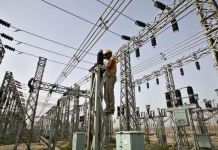ISLAMABAD, JUL 12 /DNA/ – The Pakistan Industrial and Traders Associations Front (PIAF) has strongly opposed the recently introduced taxation measures that it says are stifling business activity and undermining trust in the formal economy. In a joint statement, PIAF Chairman Faheemur Rehman Saigol, Senior Vice Chairman Nasrullah Mughal, and Vice Chairman Tahir Manzoor Chaudhary demanded the immediate reversal of controversial laws empowering the tax authorities to arrest taxpayers on allegations of fraud and disallowing business expenses based on payment modes or supplier registration status.
The PIAF leadership criticized the introduction of laws that enable the Federal Board of Revenue (FBR) to arrest individuals without conviction and treat legitimate business transactions in cash as suspicious. According to the newly inserted Sections 21Q and 21S of the Income Tax Ordinance, any transaction above Rs200,000 made in cash will result in the disallowance of 50 percent of claimed expenses, effectively increasing taxable income. Similarly, a 10 percent disallowance has been imposed on purchases from suppliers who do not possess a National Tax Number (NTN), even if those suppliers are part of informal supply chains vital to small and medium enterprises.
Chairman Faheemur Rehman Saigol noted that these measures have triggered unrest across the country’s business landscape, where traders and manufacturers are already struggling with high input costs, inflation, and regulatory burdens. He said that while PIAF has always advocated for broadening the tax net and improving documentation, such punitive steps will backfire by driving more businesses toward informality and non-compliance. Saigol argued that instead of building a relationship of trust with the business community, the government seems to be criminalizing entrepreneurship by giving unchecked powers to tax officials.
Senior Vice Chairman Nasrullah Mughal said that the business sector had already shown patience despite shrinking margins and uncertain market conditions, but the recent amendments were seen as the last straw. He warned that these policies are creating a climate of fear rather than fostering transparency or reform. Mughal urged the government to consult stakeholders before rolling out such measures and demanded the repeal of arrest powers granted to tax officers, the withdrawal of the cash expenditure disallowance clause, and the suspension of deputation of FBR staff in industrial units. He warned that if these demands are not met, PIAF members may not be able to hold back from joining the wider agitation campaign being considered by affected businesses nationwide.
Vice Chairman Tahir Manzoor Chaudhary emphasized that while PIAF supports digitalization and formalization of the economy, it cannot support abrupt enforcement without practical infrastructure, capacity-building, or support for smaller enterprises. He said many businesses operate in cash not out of choice but due to supply chain realities and low digital penetration in certain markets. Penalizing them without offering viable alternatives amounts to punishing survival strategies. Chaudhary said the implementation of e-invoicing without phased adaptation is creating compliance chaos and disrupting regular operations.
The PIAF leadership also expressed concern over the broader economic environment, saying that business confidence is rapidly eroding. Investors are wary of bringing capital into a system where the rules change overnight and businesses are treated as suspects. The government, they said, must realize that no amount of taxation can compensate for the loss of trust. Instead of relying on coercion, it should pursue policy reforms through meaningful engagement and practical incentives.
They also stressed that the arrest provisions violate the principles of justice and due process, as the power to detain someone for alleged tax fraud should only rest with the courts, not enforcement officers. They emphasized that tax evasion must be dealt with, but within a legal and transparent framework—not through intimidation or harassment.
PIAF concluded that its doors remain open for dialogue and policy cooperation, but it expects the government to take immediate corrective action before the situation escalates further. If these laws are not suspended promptly, the organization fears irreversible damage to industrial activity, employment, and economic stability.

















